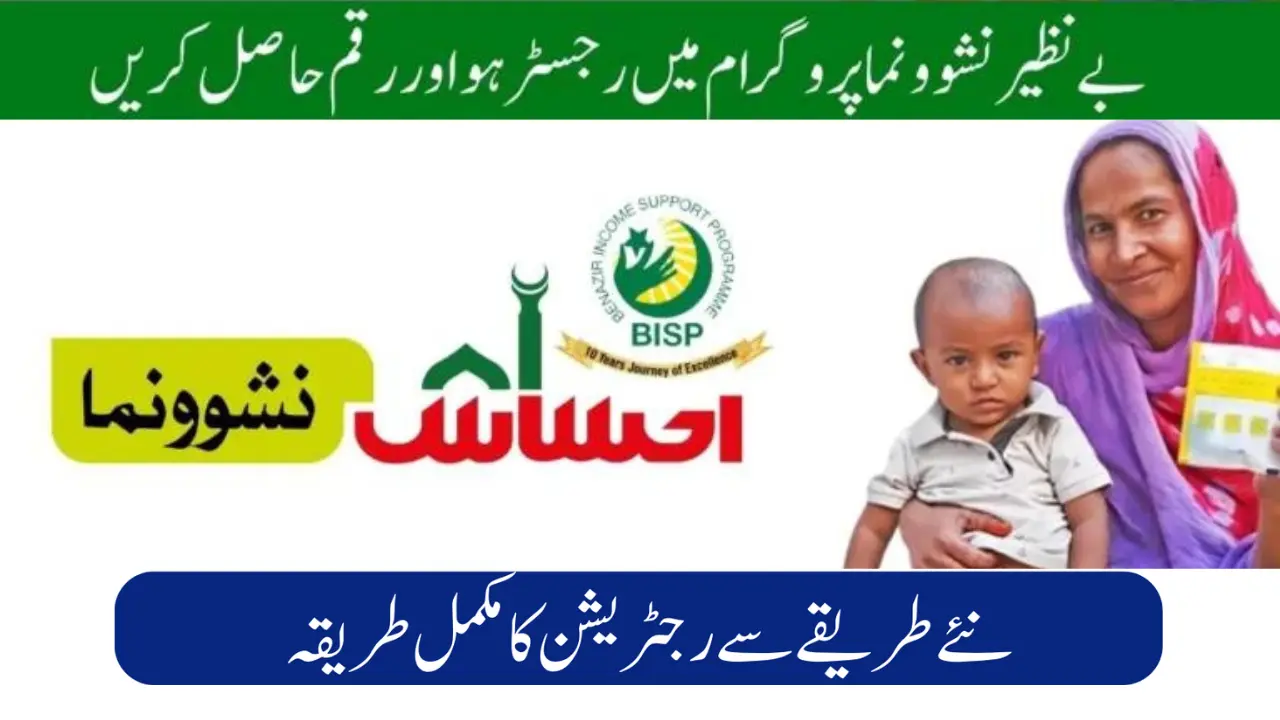BISP Nashonuma Program: Revolutionizing Nutrition for Pakistan’s Future
Malnutrition in Pakistan has long been a pressing issue, particularly among its youngest citizens. The vitality of proper nutrition during a child’s formative years cannot be overstated—it’s the cornerstone of their health, vitality, and cognitive development. Yet, millions of children in Pakistan face the harsh realities of stunting, underweight, and wasting due to insufficient access to adequate nourishment.
The Vital First 1,000 Days
The initial 1,000 days of a child’s life are paramount for shaping their future health and well-being. Recognizing this, the BISP Nashonuma Program has devised a strategic Conditional Cash Transfer initiative aimed at bolstering healthcare utilization and nutrition services among its beneficiaries.
Also Read: 8171 Ehsaas Program New Web Portal Registration Start 2024
Grasping the Scope of the Issue
UNICEF’s data paints a stark picture: nearly 10 million Pakistani children suffer from stunting, a consequence often linked to maternal malnutrition during pregnancy. Moreover, deficiencies in crucial nutrients like vitamin A, zinc, and vitamin D, coupled with alarmingly high rates of anemia, afflict over half of the country’s under-five population. This prevalence of acute malnutrition manifests in alarming rates of wasting, particularly prevalent in various regions of Pakistan.
Introducing the Benazir Nashonuma Program
In response to Pakistan’s alarming malnutrition rates—40.2% stunting, 28.9% underweight, and 17.7% wasting—the government has launched a groundbreaking initiative. The Benazir Nashonuma Program aims to secure the nation’s future by prioritizing the well-being of its children.
Also Read: Ehsaas kafalat Program for Poor Peoples
Former Prime Minister Imran Khan aptly noted, “A healthy mother means a healthy child,” thus instigating a Conditional Cash Transfer scheme to ensure mothers and their infants receive the support necessary for a brighter tomorrow.
Program Enhancements and Benefits
Under the updated program, pregnant women receive 2500 rupees every quarter, while families blessed with baby girls receive 3000 rupees, inclusive of a 500-rupee travel allowance. Similarly, families with baby boys are eligible for 2500 rupees every quarter, aimed at alleviating financial burdens and promoting proper nutrition.
Eligibility and Enrollment
To access the benefits of the Nashonuma program, women must be registered under the Kafaalat Program and meet specific criteria:
- Pregnant Women or Breastfeeding Mothers: Whether expecting or currently breastfeeding, women in these phases are eligible for program benefits.
- Babies & Toddlers: Children under the age of two can also enroll in the program, ensuring comprehensive support during critical developmental stages.
Streamlined Registration Process
Enrolling in the BISP Nashonuma Program is a straightforward endeavor:
- Visit designated centers at District and Tehsil headquarters hospitals.
- Ensure you meet the eligibility criteria outlined above.
- Bring along necessary documentation, including the woman’s Nadra-issued NIC, the child’s Nadra-issued Form-B, and the child’s immunization card.
A Beacon of Hope
The BISP Nashonuma Program emerges as a beacon of hope in Pakistan’s battle against malnutrition. By targeting pregnant and lactating women, as well as children under two, the program intervenes during critical developmental phases, laying the groundwork for a healthier future.
Through conditional cash transfers and an emphasis on preventive measures like pre- and post-birth care, immunization, and nutrition education, the program empowers families to break free from the cycle of malnutrition, fostering a robust and vibrant generation.
Conclusion: Joining Forces Against Malnutrition
With registration centers established at key healthcare facilities, the BISP Nashonuma Program endeavors to combat Pakistan’s child nutrition crisis effectively. By simplifying access to vital support services, the program invites individuals to join the fight against malnutrition, ensuring a brighter, healthier future for generations to come.

